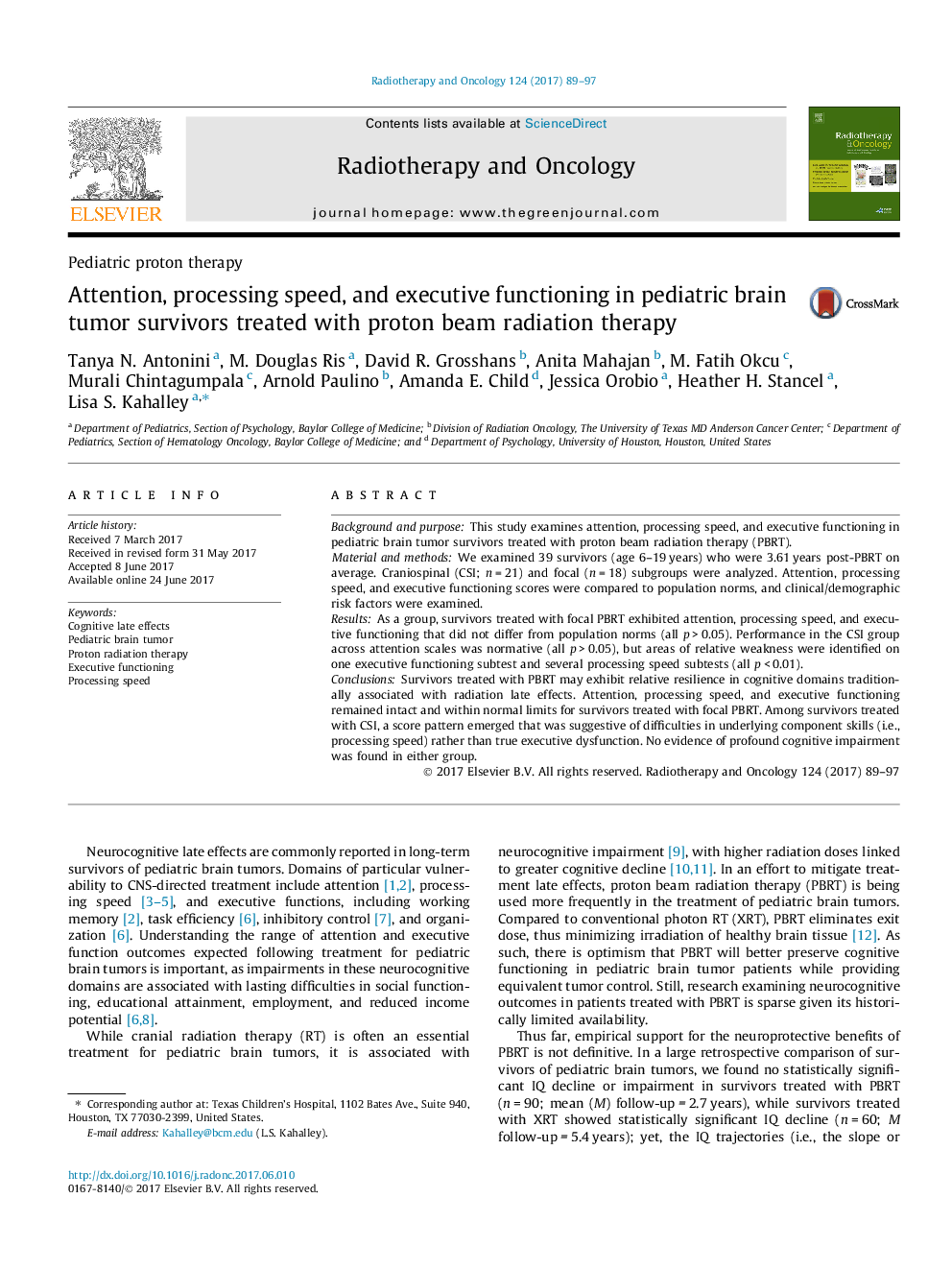| Article ID | Journal | Published Year | Pages | File Type |
|---|---|---|---|---|
| 5529504 | Radiotherapy and Oncology | 2017 | 9 Pages |
Background and purposeThis study examines attention, processing speed, and executive functioning in pediatric brain tumor survivors treated with proton beam radiation therapy (PBRT).Material and methodsWe examined 39 survivors (age 6-19 years) who were 3.61 years post-PBRT on average. Craniospinal (CSI; n = 21) and focal (n = 18) subgroups were analyzed. Attention, processing speed, and executive functioning scores were compared to population norms, and clinical/demographic risk factors were examined.ResultsAs a group, survivors treated with focal PBRT exhibited attention, processing speed, and executive functioning that did not differ from population norms (all p > 0.05). Performance in the CSI group across attention scales was normative (all p > 0.05), but areas of relative weakness were identified on one executive functioning subtest and several processing speed subtests (all p < 0.01).ConclusionsSurvivors treated with PBRT may exhibit relative resilience in cognitive domains traditionally associated with radiation late effects. Attention, processing speed, and executive functioning remained intact and within normal limits for survivors treated with focal PBRT. Among survivors treated with CSI, a score pattern emerged that was suggestive of difficulties in underlying component skills (i.e., processing speed) rather than true executive dysfunction. No evidence of profound cognitive impairment was found in either group.
